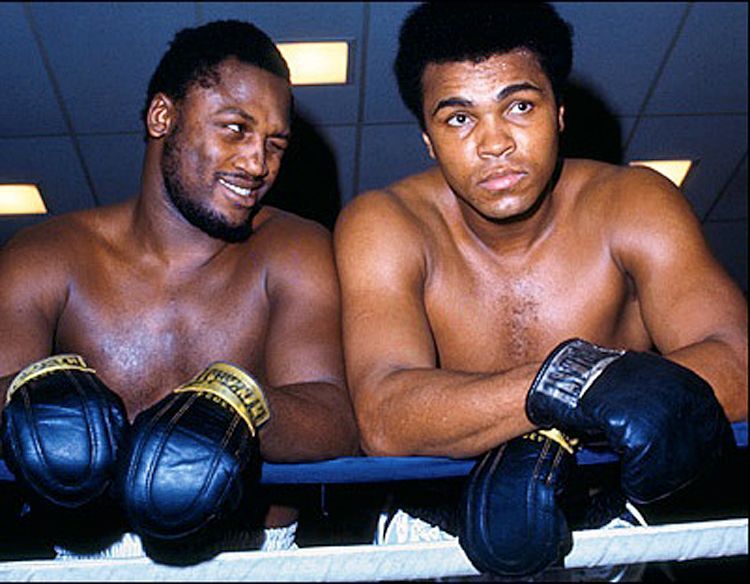Life is a fight that’s long and bruising, the score changes regularly yet surprisingly, and no one really wins in the end. And that’s for the fortunate ones. When we’re at our best or worst, it seems like it will go on forever, that no fall or rise is possible. But the sands shift and the tides are unimpressed. We can spend our time marking down who’s leading, but we’re all falling behind.
Two fighters, Muhammad Ali and Joe Frazier, brought out the best and worst in one another. Their three fights in the early 1970s made them legends and made them old. Ali used ugly, racist words to describe his fiercest opponent. It was the Greatest at his lowest. Frazier relished Ali’s eventual physical decline, diminishing himself in the process. They were both winners, but it wasn’t enough–the other had to lose. Ali seemed better about letting go of the feud in later years, but let’s remember that he won two of the fights. From “The Lonesome Death of Smokin’ Joe Frazier,” Tom Junod’s 2011 Esquire piece about the rivalry that couldn’t end on its own terms:
“The only time I ever met Joe Frazier was in downtown Atlanta, outside the arena used as a boxing venue during the 1996 Summer Olympics. The week before, Ali had once again “shocked the world” when he was handed the torch at the opening ceremonies, and then he elicited both pity and awe when he shakily climbed the stairs and ignited the Olympic flame. Despite winning the gold medal in the 1964 Games, Joe wasn’t invited to the stadium that night, and now he was selling T-shirts in a jerryrigged shack outside the boxing arena, just another of the carnie barkers who infested downtown during the games and turned Atlanta into an eyesore. His son Marvis — the former heavyweight contender who had been knocked out as if by a gunshot by a Larry Holmes right hand and then almost killed by Mike Tyson — was working the shack, making change. ‘Hey Joe!’ I said, and walked up to him as my father had 25 years earlier. He held out his hand horizontally, and held it still. ‘Hey Joe!’ I repeated, and Joe, looking at his hand and then at me, said with a familiar smile: ‘Still steady.’
He was saying that he had won. He was saying that while Ali was a rattling relic with Parkinson’s Syndrome, he, Joe Frazier, was still steady, and capable of keeping his hand still. He was saying, above all, that wherever Ali was, he, Joe Frazier, put him there, and that he was vindicated by the split decision handed down by the fullness of time.
Now Joe Frazier is dead, and Muhammad Ali has once again miraculously outlasted him. But that’s the thing about fighting your battles over the fullness of time: You fight when you’re a young man, and you fight until the final bell. You keep fighting when you’re an old man, and you keep fighting to the death.”
Tags: Joe Frazier, Muhammad Ali, Tom Junod

